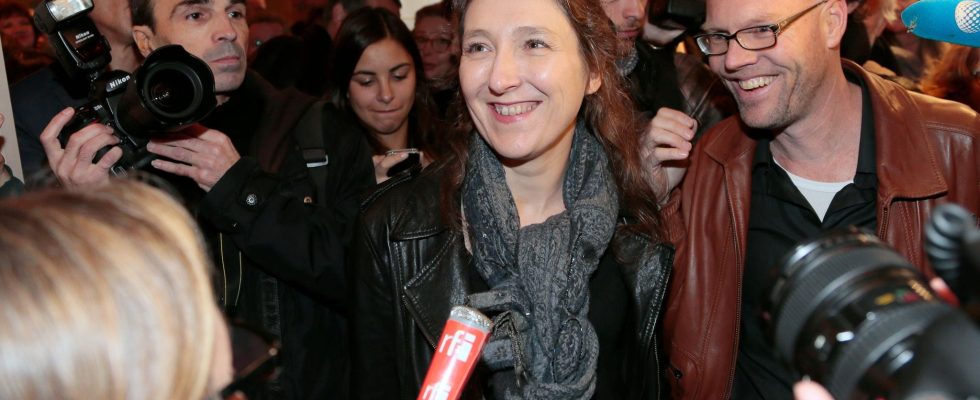Invited on the set of François Busnel in 2016, Marie Darrieussecq explained with her customary arrogance the importance that the titles of her books have for her: “As I am a writer, I hear the music of words – well, I try … It even happens that I have the title before the novel. I sometimes have bursts of titles where I say to myself: what is the book that I need to write behind this title? It’s curious… It There’s a phrase from Julien Gracq that I really like, which says: ‘I write my books to know what’s inside.'” Problem: where Gracq was the undisputed king of poetic titles (At Argol Castle, The Shore of Sirtes, Around the seven hillsetc.), the new Darrieussecq is called “Making a Woman”. Such an ugly title could only hide an ultra-heavy novel.
Revealed in 1996 by Truisms, pseudo-Kafkaesque fantasy where a woman transforms into a sow, Marie Darrieussecq has long proven that all is not good in the pig. We will not bring out her few pots here (she was accused of plagiarism by two high-flying colleagues, Marie NDiaye and Camille Laurens). Let us cite as another feat of arms The sea upside down, a bobo novel about migrants released in 2019. Besides the more than indecent side of the theme, it was heated – Maylis de Kerangal had published At this point in the nighton Lampedusa, from 2015. Since we cannot forever copy the ideas of our neighbors, Marie Darrieussecq chose this time to autopastiche by remixing Cleves, his 2011 novel.
So here we are again in Cleves, a village in the Basque Country, in the 1980s. With a contempt for her own characters that borders on cruelty, Marie Darrieussecq portrays two not very smart teenage girls, surrounded by no less stupid boys. Solange becomes pregnant at 15. Rose hesitates between Marcos, a “provincial guru”, and Christian, a failed poet. In bed, Christian does not seem to have Casanova’s gifts. Marie Darrieussecq lines up the laborious touch-wee scenes punctuated with pretty sentences: “He kisses her and the penis gets stuck between them, it makes dzoiiiing like a spring when he moves away.” When Christian finally manages to lose his virginity the reader is treated to sex scenes worthy of Bruno Le Maire and Eric Reinhardt – who we know are masters in the matter. Fortunately the Life will not end at puberty for our two heroines. Rose is studying psychology. As for Solange, she wants to become an actress. She therefore settles in Paris, where she goes out to Bains Douches, then goes to London, whose underground she frequents. In these passages (and there are some), we pinch ourselves: what bug has bitten the normalienne to want to write like this on pop culture? She is almost as credible as if Elisabeth Borne established herself as a specialist in the Berlin techno scene of the 2000s.
The feeling of reading a novel generated by an algorithm
In truth, nothing sticks in Making a woman. How can Marie Darrieussecq work as a psychoanalyst (one of her livelihoods) with so little psychological finesse? Interiority of the characters, cultural references, reconstruction of the era: nothing rings true. No humor, no melancholy, no soul, you have the impression of reading a novel generated by an algorithm. When asked what is the book that changed her life, Marie Darrieussecq answers The Catcher in the Rye, by Salinger. She sometimes tries here to imitate her written orality. But this remarkable intellectual had to study literature in cold structuralist essays. And Salinger put through Gérard Genette’s mill, it results in an indigestible soup…
At the time of Truisms, chronicling the novel in The literary Figaro, the great critic Renaud Matignon noted about this “somewhat heavy allegory”: “What is missing from this fabliau to be a very good book? Quite simply someone for writing. Mme Darrieussecq cares about literature like an acorn in mid-September, and one would be tempted to point out to him that in telling the story of a sow one is not obliged to write like a pig.” In this regard, he noted “slag and clumsiness of language, which we fear must be attributed more to a disgrace of style than to a parodic aim”. Alas, the novelist has made no progress over the last thirty years. Its flaws have even gotten worse. We’re in no rush to read what she’ll publish in the 2050s.
.
